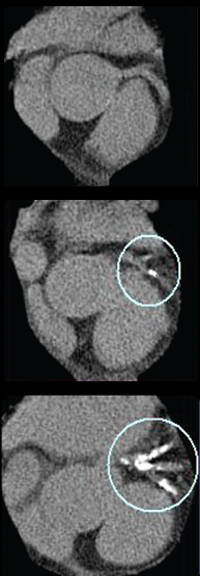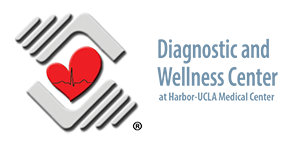The calcification that we measure is caused from the buildup of atherosclerosis (plaque) in the inner lining of the artery. As the plaque builds and hardens it can reduce and block the flow of blood through the artery. The plaque can rupture, become dislodged, or form a blood clot leading to a heart attack. The early detection of coronary calcium allows for the early detection of coronary artery disease (hardening of the arteries), which enables patients to make changes in their risk factors in order to stop, stabilize and perhaps even reverse the process. Diabetes, tobacco use, high blood pressure, obesity, high cholesterol, sedentary lifestyle and family history are important contributors to developing plaque (atherosclerosis), which can lead to a heart attack.
A score of zero (negative study, no coronary calcium) is ideal and shows there is no measurable plaque in your arteries (with 98-99% certainty). Unfortunately, many people do not have scores of zero, because as people age, they tend to develop some atherosclerosis in their hearts. If you have a score of zero, you are doing well, and probably do not need to change too much. Of course, we recommend exercise, eating properly (regardless of your score), and quitting smoking.
The Heart Scan is appropriate for men 35 or older and women 40 or older with any of the following risk factors:
- High blood pressure
- High cholesterol
- Diabetes
- History of tobacco use
- Family history of heart disease
- Overweight or obese
- Significant emotional or Job-related stress

